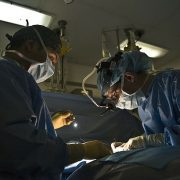Tired all the Time? Get Moving!
All of us have experienced tiredness, exhaustion, and fatigue. Sometimes it hits after a late night spent working or socializing. Other times, our exhaustion seems to come out of nowhere. With our fast-paced modern lifestyles, it’s not surprising that statistics from the Center for Disease Control and Prevention (CDC) report around 15.3 percent of women and 10.1 percent of men regularly feeling very tired or exhausted in the United States.
A lack of sufficient sleep isn’t the only factor that could be contributing to your fatigue – poor dietary habits, excessive napping, unhealthy amounts of stress in your daily life, and living a more sedentary lifestyle are all possibilities according to a recent article published by Medical News Today. It might seem counter-intuitive that more exercise could help you feel less tired, but it’s the truth! Sitting on the couch is one of the worst things you can do for chronic fatigue or tiredness (not to mention the impact it has on your back). Moderate amounts of exercise are proven to boost your energy, not drain it – and getting a good workout in during the day will help you sleep better at night.
If you rarely exercise with intention, or spend most of your day at a desk, it can be challenging to transition into a more active lifestyle. Many people in such circumstances benefit from joining a group fitness class or finding an “exercise buddy” to hold them accountable. Our Pilates classes right here in Portsmouth are a great option because they’re geared towards beginners, and Pilates gives you that full body workout that will leave you feeling invigorated and energized afterwards – but ready to fall right asleep at bedtime! The mindfulness aspect of Pilates as well as the exercise make it helpful for reducing stress, which in turn reduces fatigue.
We say all the time that movement is medicine, and it’s true in more ways than one. Movement is medicine for the aches and pains of your joints and muscles, but it’s also medicine for your stress and exhaustion. Exercise stimulates endorphin release, triggering positive feelings of elation or mild euphoria. Shifting into a more positive mental state during a day when you’re feeling completely drained will help you cope better with whatever you’re dealing with, in addition to giving you more energy to get through it. You don’t need to spend hours at the gym every day – just 30 minutes of movement each day, whether it be walking, running, biking, Pilates, yoga, golf, etc. will make a difference.



